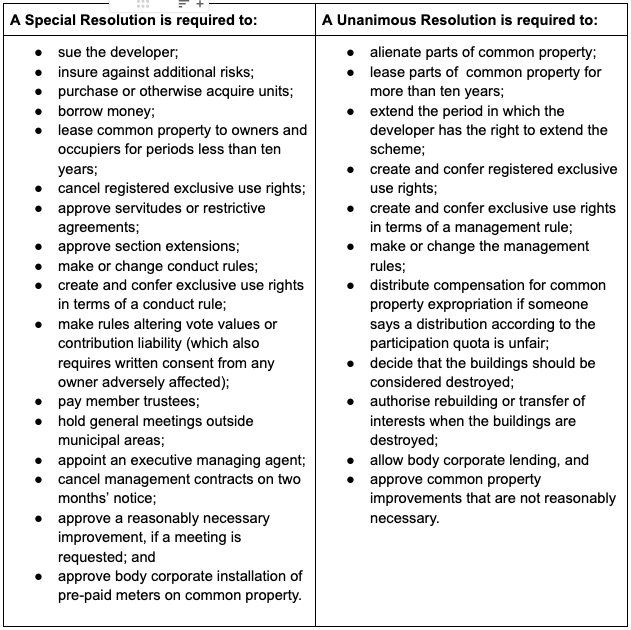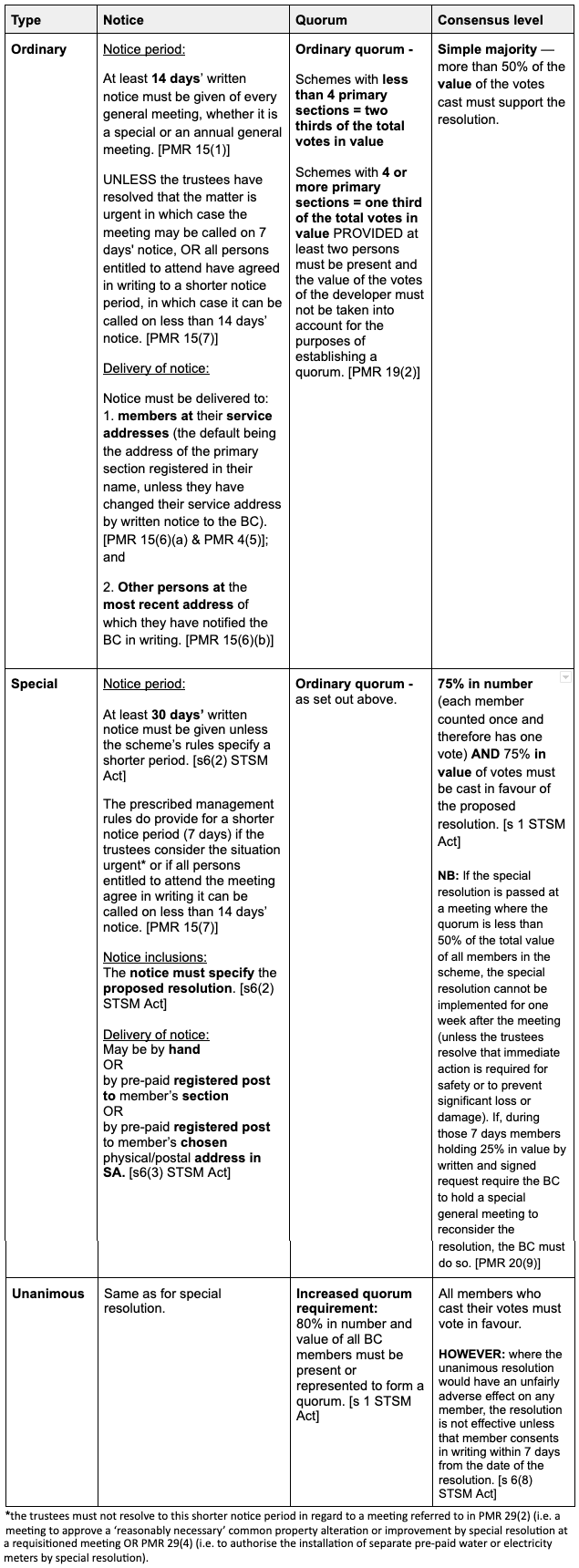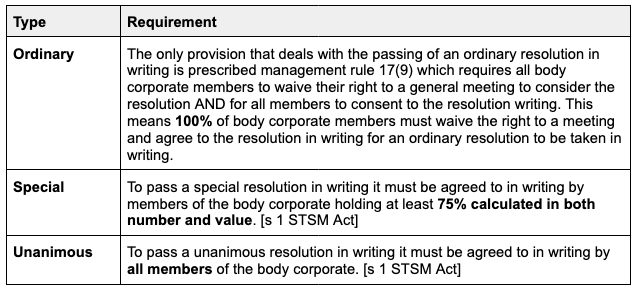
Body corporate resolutions may seem like a simple topic but I can tell you from experience that it is often misunderstood. In Paddocks Club, our online coaching platform where we give community scheme advice to members, the issue of how to legally pass an ordinary, special or unanimous resolution comes up time and again.
“Does each body corporate member have one vote or do we need to count votes based on PQ – or both?!”
“We want to take an ordinary resolution in writing, will a simple majority suffice?”
“Is the quorum requirement raised for a meeting at which a special resolution is to be taken? Or is that just for unanimous resolutions?”
I’ll answer all of these questions and more in this article. But what I’m aiming to give you here is a ‘cheat sheet’ that summarises all of the basic requirements to legally take body corporate resolutions.
Types of resolutions
All body corporate decisions are taken by member resolution. A proposed resolution must be voted on and decided by ordinary, special or unanimous resolution, each of which have different requirements and consensus levels.
The Sectional Titles Schemes Management Act of 2011 (the ‘STSM Act’) and its prescribed rules require that some decisions be taken by special resolution, while others require a unanimous resolution. When neither the STSM Act nor the scheme’s rules require a special or a unanimous resolution, members take the decision by ordinary resolution.
Below are examples of decisions that the sectional title legislation specifically requires a special or unanimous resolution to authorise:
Two ways of taking resolutions
All types of resolutions can be taken either at a general meeting of the body corporate, or in writing, and there are different requirements for each method as summarised later below.
Calculating votes in ‘number’ and ‘value’
The legislation provides for two different ways of calculating votes and specifies when one or both of these must be taken into account for the purposes of passing a specific resolution.
In number: When votes are counted ‘in number’ each body corporate member is counted once irrespective of the number of units they own in the scheme. [s 6(7) STSM Act]
In value: When votes are counted ‘in value’ the default position is that the votes are calculated according to the participation quota (‘PQ’) attached to each section. So if one person owns four sections, the PQs of those four sections must be added together and the total will be the value of his/her vote.
However, if the developer or the body corporate has made a section 11(2) rule that varies the effect of the PQ for the purposes of calculating vote values, then the provisions of that rule apply instead of the PQ. [s 6(6) STSM Act]
Resolutions taken at a general meeting of the body corporate:
Resolutions taken in writing (aka by ‘round robin) by the body corporate:
Excluded Votes
A body corporate member is not entitled to vote for ordinary resolutions if:
- They refuse to pay to the body corporate any amount due by that member after a court or adjudicator has given a judgment or order for payment of that amount. [PMR 20(2)(a)] Note: a member is not disenfranchised simply because they are in arrears, it is only if legal action has successfully taken place and despite the adjudication order or judgment the member continues to refuse to pay. Or,
- A member persists in breach of any of the scheme’s conduct rules after a court or adjudicator has ordered that the member refrain from such breach. [PMR 20(2)(b)] Again, this disenfranchisement only applies if there is an adjudication order or judgment in place and the member continues in breach.
In addition, the value of the votes of any sections registered in the name of the body corporate must be considered abstentions. [PMR 20(3)]
So there you have it.
If you need help with questions relating to body corporate resolutions or any other questions relating to community schemes, consider joining us in Paddocks Club for fast support.
Article reference: Paddocks Press: Volume 17, Issue 11.
Jennifer Paddock is a dual-qualified lawyer with experience working as a strata title managing agent and solicitor in New South Wales. Prior to this, she served as a specialist sectional title attorney and practice manager at Paddocks for five and a half years. She brings a wealth of knowledge and expertise to the Paddocks team. Contact her at consulting@paddocks.co.za.
This article is published under the Creative Commons Attribution license.







